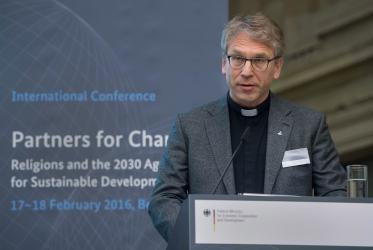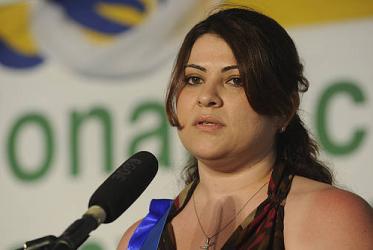Displaying 61 - 80 of 80
26 April 2016
Catholic-WCC group pursues new mandate
13 April 2016
International affairs facilitator reflects on pilgrimage
31 March 2016
Symposium focuses on religion, violence, extremism
04 February 2016
WCC urges responsibility for and support to the refugees in Europe
04 September 2015
Assembly renews churches’ commitment towards justice and peace
08 November 2013
Concern and solidarity for Bangladesh
17 May 2013
Building peace in solidarity with the poor
12 September 2011














